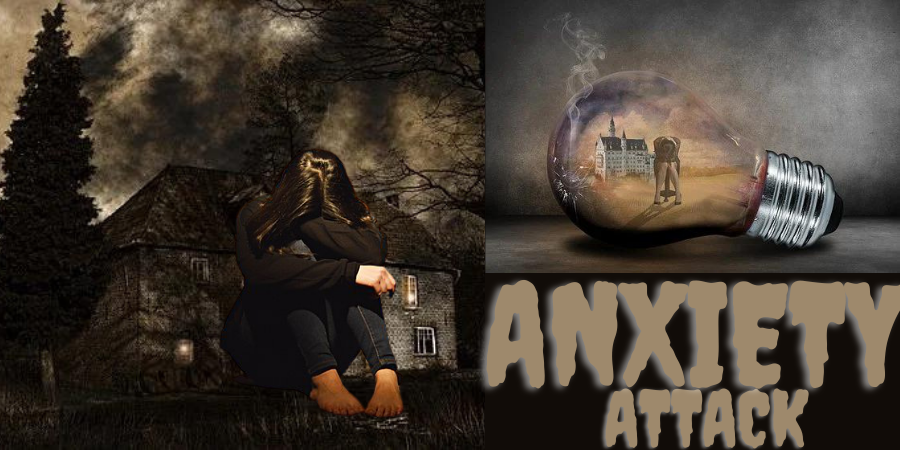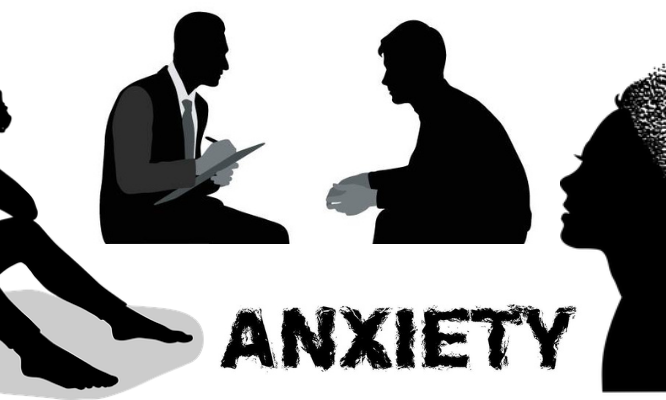Anxiety is a natural emotion characterized by feelings of stress, tension, worried thoughts, and physical changes like increased heart rate or blood pressure. It is a feeling of fear or apprehension about what is to come. Taking an exam, giving a speech, or going to a job interview can cause most people to feel nervous and fearful. But if your feelings of anxiety are pretty intense, interfere with your life, and last for longer than six months, you can have an anxiety disorder. Nearly everyone feels anxious at many points in their lives, but several people have an actual anxiety-related condition.
Overview :
On average, 18 percent of American adults, i.e., close to one-fifth of the adult population — are affected by anxiety or an anxiety-related disorder (such as OCD) every year. But while these anxiety disorders are highly treatable, only about 37.9 percent of people with a disorder receive treatment. The symptoms indicating an anxiety disorder may seem so commonplace that it is possible for someone not to realize that they have a formal condition.
How so? Anxiety symptoms may range from life-altering phobias, like the fear of driving, to seemingly normal occurrences, like fatigue or headaches. While the latter two can not prompt you to believe you have a chronic condition and can even confuse you into thinking you have two of the most common flu symptoms, they are also physical manifestations of high anxiety that, when combined with more specific mental or physical symptoms — may suggest that you have an anxiety disorder. Though anxiety affects everyone, it differs for various individuals in how it manifests, why it manifests, and to what magnitude it occurs. For this reason, anxiety diagnoses may take many forms.
You can classify anxiety into generalized anxiety disorder (GAD), panic disorder (PD), and social anxiety disorder (SAD) as actual anxiety disorders, while anxiety-related conditions include obsessive-compulsive disorder (or OCD) and post-traumatic stress disorder (or PTSD). Because these symptoms may seem like everyday occurrences, anxiety disorders are usually difficult to understand. Please read this blog to know more about anxiety. The blog also tells you how to treat anxiety and lead a peaceful everyday life.
What are the symptoms of anxiety?
Anxiety feels different depending upon the person experiencing anxiety. Feelings might range from butterflies in your stomach to a racing heart. You could feel out of control like there is a disconnect between your mind and body. Other ways people experience anxiety include panic attacks, nightmares, and painful thoughts or memories that you can not control. You can have a general feeling of worry and fear or fear a specific event or place. Symptoms of general anxiety include:
- rapid breathing
- increased heart rate
- trouble concentrating
- restlessness
- difficulty falling or staying asleep
Your anxiety symptoms can be different from someone else’s. That is why it is essential to know all the ways anxiety can present itself.
Anxiety attack
An anxiety attack is a feeling of extreme worry, apprehension, distress, or fear. For many individuals, an anxiety attack builds slowly. It can worsen as a stressful event approaches. Anxiety attacks may vary greatly, and symptoms can differ among people. That is because the many anxiety symptoms do not happen to everyone, and they might change over time.

Common symptoms of an anxiety attack include:
- shortness of breath
- feeling faint or dizzy
- sweating
- dry mouth
- restlessness
- distress
- fear
- chills or hot flashes
- numbness or tingling
- apprehension and worry
An anxiety attack can share similar symptoms as a panic attack, but they are not the same.
What causes anxiety?
Researchers aren’t sure of the exact reason causing anxiety. But, a combination of factors likely plays a role. These include environmental and genetic factors, as well as brain chemistry. Researchers believe that the areas of our brains responsible for controlling fear can also be impacted. Current research on anxiety is taking a deeper look at the parts of the brain involved with anxiety.
Are there tests that can diagnose anxiety?
A single test can not diagnose anxiety. Instead, an anxiety diagnosis needs a lengthy process of mental health evaluations, physical examinations, and psychological questionnaires. Some doctors can conduct a physical exam, including blood or urine tests, to rule out underlying medical problems that can contribute to symptoms you are experiencing. Several anxiety tests and scales can also be used to help your doctor assess the level of anxiety you are experiencing.
What are treatments for anxiety?
Once you have been diagnosed with anxiety, you must explore treatment options with your doctor. For some individuals, medical treatment is not necessary. Lifestyle changes can be enough to cope with these symptoms. However, treatment could help you overcome the symptoms in moderate or severe cases and lead a more manageable everyday life.
Treatment for anxiety falls into two categories: medication and psychotherapy. Meeting with a psychologist or therapist can help you learn tools to use and techniques to cope with anxiety when it occurs. Drugs commonly used to treat anxiety include sedatives and antidepressants. They work to prevent episodes of anxiety, balance brain chemistry and ward off the most severe symptoms of anxiety disorder.
What natural remedies can be used for anxiety?
Lifestyle changes can efficiently relieve some of the anxiety and stress you may cope with within your day-to-day life. Most natural “remedies†for anxiety consist of participating in healthy activities, caring for your body, and eliminating unhealthy practices. These include meditating, getting enough sleep, staying active and exercising, eating a healthy diet, avoiding alcohol and caffeine, and quitting smoking cigarettes.
The takeaway from this blog
You can manage anxiety disorders with the help of psychotherapy, medication, or a combination of both. Some individuals who have a mild anxiety disorder, or a fear of something they can easily avoid, decide to live with the anxiety disorder and not seek treatment. It is essential to understand that anxiety disorders are treatable, even in severe cases. Although anxiety often does not go away, you can learn to control it and live a happy and healthy life.

